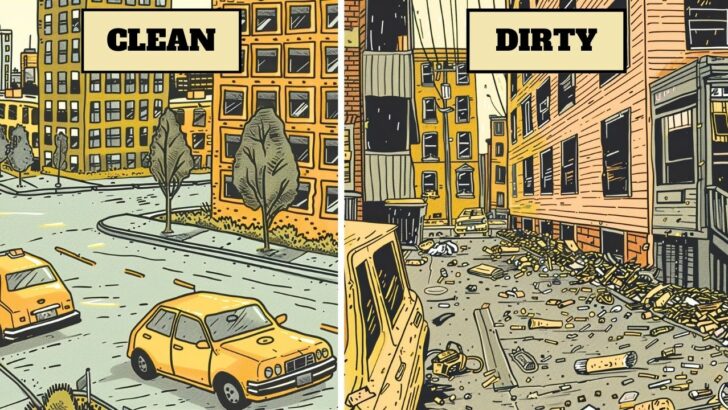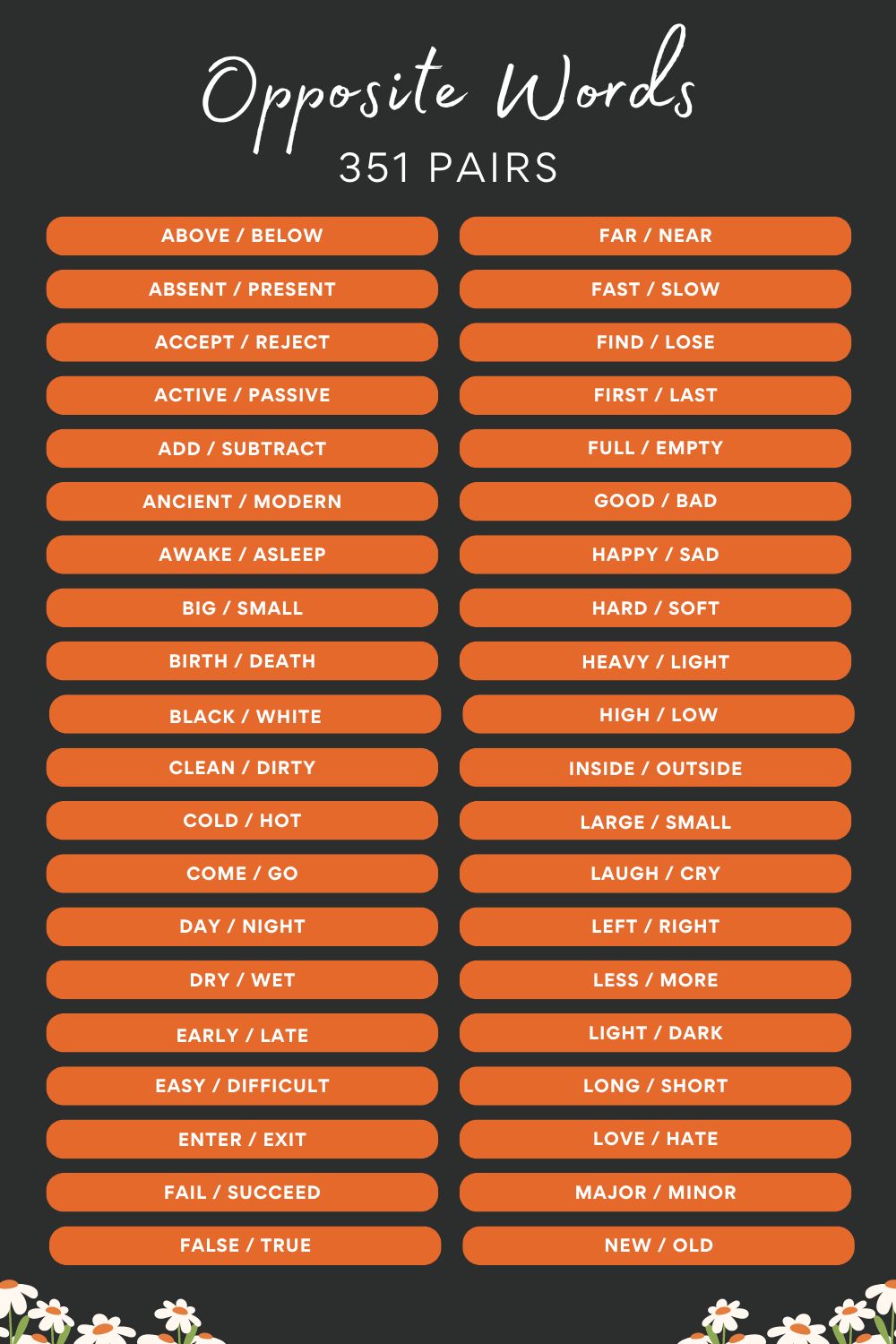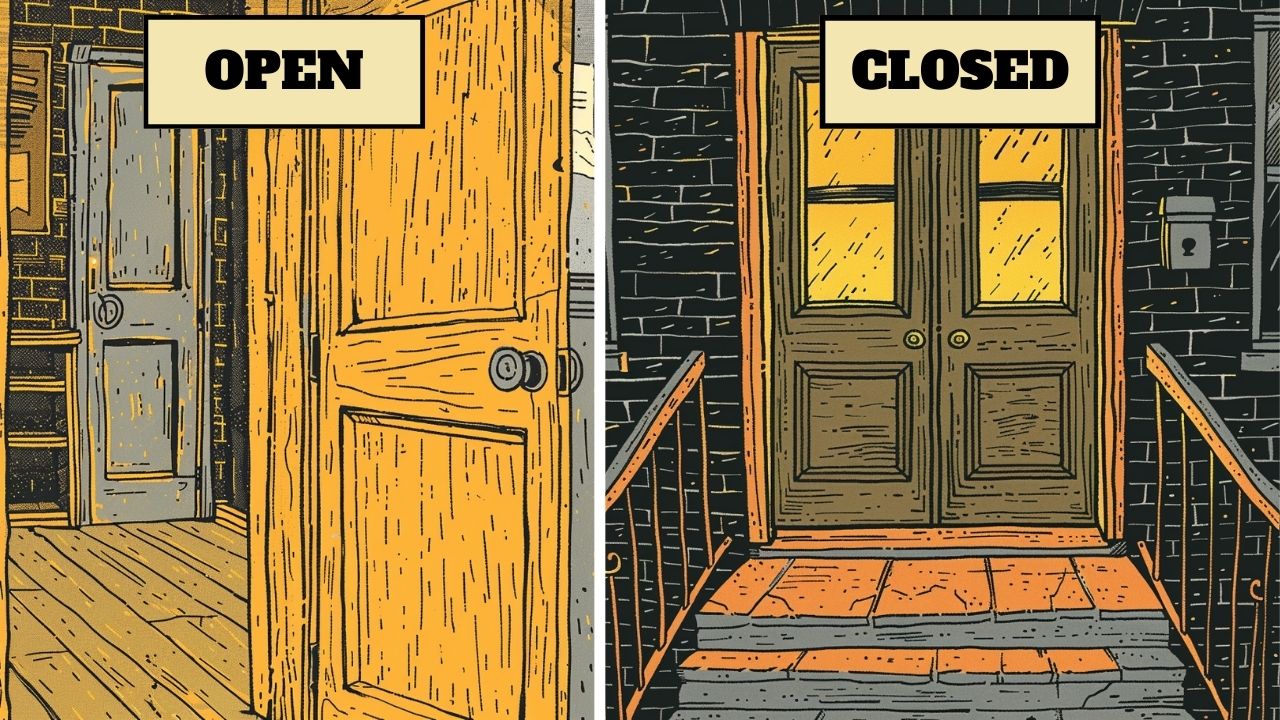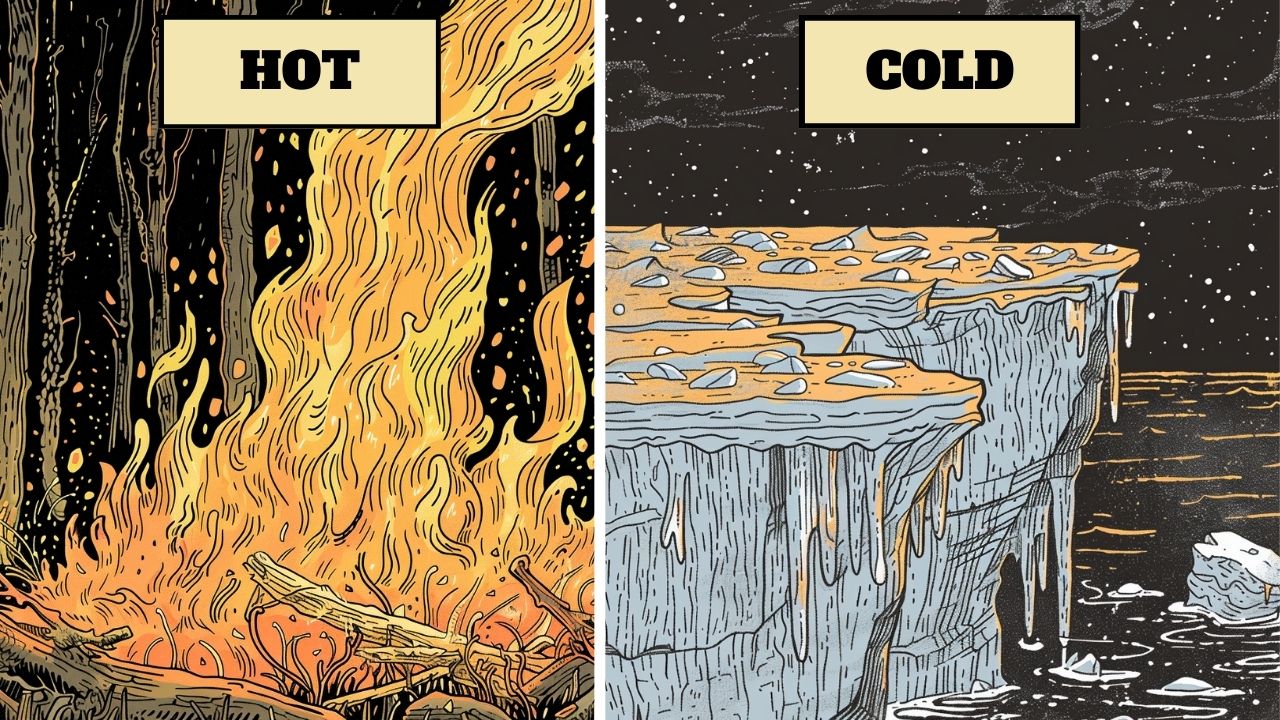Let us now move into the world of opposites, where words clash and harmonize in the dance of language.
Picture this: every word has a shadow, a counterpart that defines its limits and possibilities.
Opposite words aren’t just a fundamental part of our vocabulary; they’re the yin and yang of communication, offering us a way to explore and express the complex, colorful spectrum of life.
From the everyday contrasts like ‘hot’ and ‘cold’ to the conceptual divides between ‘love’ and ‘hate,’ opposites help us navigate the world’s diversity.
So, let’s embark on a journey through the land of antonyms, where each pair of words holds a story, a lesson in balance and perspective. Ready to flip the script?
Most Popular Opposite Word Pairs in English
- Above – Below
- Absent – Present
- Accept – Reject
- Accidental – Intentional
- Active – Passive
- Add – Subtract
- Advance – Retreat
- Affirmative – Negative
- After – Before
- Against – For
- Alive – Dead
- All – None
- Allow – Forbid
- Ancient – Modern
- Answer – Question
- Apart – Together
- Appear – Disappear
- Approve – Disapprove
- Arrival – Departure
- Ascend – Descend
- Awake – Asleep
- Back – Front
- Beautiful – Ugly
- Begin – End
- Best – Worst
- Better – Worse
- Big – Small
- Bitter – Sweet
- Black – White
- Blame – Praise
- Bless – Curse
- Bold – Timid
- Borrow – Lend
- Bottom – Top
- Brave – Cowardly
- Break – Fix
- Bright – Dull
- Broad – Narrow
- Build – Destroy
- Busy – Idle
- Buy – Sell
- Calm – Excited
- Careful – Careless
- Catch – Miss
- Cease – Begin
- Cheap – Expensive
- Clean – Dirty
- Clear – Cloudy
- Clever – Dumb
- Close – Open
- Cold – Hot
- Combine – Separate
- Come – Go
- Comedy – Tragedy
- Common – Rare
- Complete – Incomplete
- Complicated – Simple
- Compliment – Insult
- Connect – Disconnect
- Conscious – Unconscious
- Construct – Destroy
- Continue – Stop
- Cool – Warm
- Correct – Wrong
- Courage – Fear
- Create – Destroy
- Cruel – Kind
- Cry – Laugh
- Dark – Light
- Dawn – Dusk
- Day – Night
- Dead – Alive
- Defeat – Victory
- Defense – Attack
- Deliberate – Accidental
- Descend – Ascend
- Despair – Hope
- Destroy – Build
- Deteriorate – Improve
- Different – Same
- Difficult – Easy
- Dirty – Clean
- Disappear – Appear
- Disapprove – Approve
- Discourage – Encourage
- Discover – Lose
- Distant – Near
- Divide – Unite
- Divorce – Marry
- Down – Up
- Dry – Wet
- Dull – Sharp
- Early – Late
- East – West
- Easy – Difficult
- Empty – Full
- End – Begin
- Enter – Exit
- Equal – Different
- Even – Odd
- Evil – Good
- Expand – Contract
- Expensive – Cheap
- Fail – Succeed
- False – True
- Far – Near
- Fast – Slow
- Fat – Thin
- Fear – Courage
- Few – Many
- Find – Lose
- First – Last
- Fixed – Movable
- Flat – Hilly
- Float – Sink
- Forget – Remember
- Forgive – Blame
- Forward – Backward
- Free – Captive
- Freeze – Melt
- Fresh – Stale
- Friend – Enemy
- Full – Empty
- Funny – Serious
- Gain – Lose
- General – Specific
- Gentle – Harsh
- Give – Take
- Glad – Sad
- Guilty – Innocent
- Happy – Unhappy
- Hard – Easy
- Harm – Heal
- Harsh – Gentle
- Hate – Love
- Heavy – Light
- High – Low
- Hire – Fire
- Hit – Miss
- Horizontal – Vertical
- Hot – Cold
- Huge – Tiny
- Humble – Proud
- Hungry – Full
- Ignore – Notice
- Illegal – Legal
- Illness – Health
- Imaginary – Real
- Import – Export
- In – Out
- Increase – Decrease
- Inferior – Superior
- Inside – Outside
- Intentional – Unintentional
- Interest – Boredom
- Internal – External
- Join – Separate
- Joy – Sorrow
- Junior – Senior
- Just – Unjust
- Knowledge – Ignorance
- Land – Water
- Large – Small
- Laugh – Cry
- Lead – Follow
- Leader – Follower
- Left – Right
- Legal – Illegal
- Lend – Borrow
- Less – More
- Light – Dark
- Like – Dislike
- Liquid – Solid
- Little – Much
- Live – Die
- Long – Short
- Lose – Win
- Loud – Quiet
- Love – Hate
- Low – High
- Major – Minor
- Many – Few
- Marry – Divorce
- Mature – Immature
- Maximum – Minimum
- Mean – Kind
- Mend – Break
- Messy – Neat
- Minor – Major
- Miss – Hit
- Modern – Ancient
- Moist – Dry
- More – Less
- Morning – Evening
- Narrow – Wide
- Nasty – Nice
- Natural – Artificial
- Near – Far
- Neat – Messy
- Negative – Positive
- New – Old
- Night – Day
- Noisy – Quiet
- None – All
- Normal – Strange
- North – South
- Obey – Disobey
- Open – Closed
- Optimistic – Pessimistic
- Order – Chaos
- Organized – Disorganized
- Original – Copy
- Out – In
- Outside – Inside
- Over – Under
- Partial – Complete
- Pass – Fail
- Past – Future
- Patient – Impatient
- Peace – War
- Permanent – Temporary
- Permit – Prohibit
- Positive – Negative
- Possible – Impossible
- Poverty – Wealth
- Powerful – Weak
- Praise – Criticize
- Present – Absent
- Pretty – Ugly
- Private – Public
- Professional – Amateur
- Profit – Loss
- Progress – Regress
- Proud – Humble
- Push – Pull
- Quiet – Loud
- Raise – Lower
- Rapid – Slow
- Rare – Common
- Raw – Cooked
- Real – Imaginary
- Receive – Send
- Reduce – Increase
- Refuse – Accept
- Regret – Satisfaction
- Regular – Irregular
- Relevant – Irrelevant
- Reliable – Unreliable
- Rich – Poor
- Right – Left
- Right – Wrong
- Rise – Fall
- Rough – Smooth
- Rude – Polite
- Rural – Urban
- Sad – Happy
- Safe – Dangerous
- Same – Different
- Satisfied – Dissatisfied
- Save – Spend
- Scarce – Abundant
- Scream – Whisper
- Secure – Insecure
- See – Overlook
- Sell – Buy
- Send – Receive
- Senior – Junior
- Sensitive – Insensitive
- Separate – Together
- Serious – Funny
- Sharp – Dull
- Short – Tall
- Shout – Whisper
- Show – Hide
- Shrink – Expand
- Silent – Noisy
- Simple – Complex
- Single – Married
- Sink – Float
- Sitter – Stand
- Slow – Fast
- Small – Large
- Smooth – Rough
- Soft – Hard
- Solid – Liquid
- Sorrow – Joy
- Sour – Sweet
- Speak – Listen
- Special – Ordinary
- Specific – General
- Spend – Save
- Start – Finish
- Stay – Leave
- Steady – Unsteady
- Steep – Flat
- Stiff – Flexible
- Stop – Start
- Straight – Crooked
- Strength – Weakness
- Strong – Weak
- Success – Failure
- Sufficient – Insufficient
- Sunny – Cloudy
- Superficial – Deep
- Supply – Demand
- Support – Oppose
- Sure – Unsure
- Surprise – Expect
- Sweet – Bitter
- Swift – Slow
- Sympathy – Antipathy
- Synthetic – Natural
- Tall – Short
- Tame – Wild
- Temporary – Permanent
- Tender – Tough
- Tight – Loose
- Together – Apart
- Top – Bottom
- Tough – Tender
- Transparent – Opaque
- True – False
- Trust – Distrust
- Ugly – Beautiful
- Under – Over
- Unite – Divide
- Up – Down
- Upper – Lower
- Urban – Rural
- Use – Waste
- Useful – Useless
- Vacant – Occupied
- Vague – Clear
- Valuable – Worthless
- Victory – Defeat
- Violent – Peaceful
- Visible – Invisible
- Voluntary – Compulsory
- Warm – Cool
- Weak – Strong
- Wealth – Poverty
- Wet – Dry
- Wide – Narrow
- Wild – Tame
- Win – Lose
- Wisdom – Folly
- Withdraw – Advance
- Wrong – Right
- Young – Old
- Youth – Age
- Zenith – Nadir
Having explored an extensive list of 100 opposite word pairs, we can further enrich our understanding by categorizing these pairs into three distinct types: complementary antonyms, gradable antonyms, and relational (or converse) antonyms.
Each category sheds light on the nuanced relationships between words and the concepts they embody, offering a deeper insight into language’s capability to articulate the spectrum of human experience and the natural world.
Now, let’s dig into each category, drawing examples from our list to illustrate these fundamental linguistic relationships.
Complementary Antonyms
Complementary antonyms are clear-cut opposites; they represent states or qualities that cannot coexist.
The assertion of one is the direct negation of the other, leaving no middle ground. From our list, examples include:
- Alive – Dead: This pair epitomizes the concept of complementary antonyms, as entities can only be in one state or the other.
- True – False: These words represent the binary nature of truth and falsity, where a statement cannot be both true and false at the same time.
- Visible – Invisible: This pair indicates the presence or absence of visibility, with no intermediate state between being seen or unseen.
Gradable Antonyms
Gradable antonyms exist on a continuum, with various degrees and nuances between them.
They reflect the idea that many qualities are not absolute but can vary in intensity or magnitude. Examples from our list are:
- Hot – Cold: Temperature can range from extremely hot to extremely cold, with many gradations in between.
- Young – Old: Age is a spectrum where individuals can be relatively younger or older, and there are many stages in between youth and old age.
- Light – Dark: Brightness levels can vary, allowing for a range of conditions from very light to very dark, with many shades in between.
Relational Antonyms (or Converse Antonyms)
Relational antonyms, or converse antonyms, describe a relationship where the existence of one implies the existence of the other.
These words are interdependent and define each other in terms of their connection. Examples from our list include:
- Buy – Sell: The act of buying cannot occur without someone selling, and vice versa. These actions are opposite ends of a transaction.
- Teacher – Student: This pair (though not explicitly listed) represents a learning relationship. For one to teach, there must be someone to learn the taught content.
- Parent – Child: Similarly, the relationship between a parent and a child is reciprocal; one cannot be a parent without having a child, and every child has parents.
By categorizing opposite words into these types, we delve deeper into the structure and philosophy of language, revealing how words serve as the building blocks for expressing complex ideas, relationships, and states of being.
This classification not only aids in vocabulary development but also enhances our ability to engage with the world through language.

Hey fellow Linguaholics! It’s me, Marcel. I am the proud owner of linguaholic.com. Languages have always been my passion and I have studied Linguistics, Computational Linguistics and Sinology at the University of Zurich. It is my utmost pleasure to share with all of you guys what I know about languages and linguistics in general.





